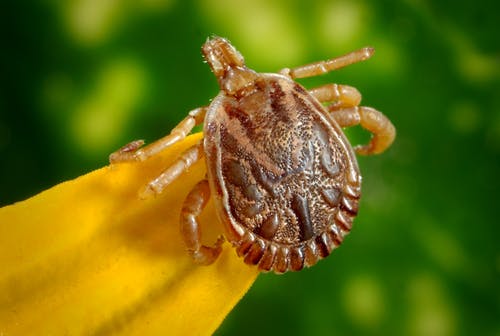Lyme Disease
Lyme Disease
11/10/16
I take a broad view of what Lyme Disease actually is. Traditionally, Lyme is defined as an infectious illness cause by the spirochete, Borrelia burgdorferi (Bb). While this is certainly technically correct, clinically the illness often is much more than that, especially in the disseminated and chronic forms.
Instead, I think of Lyme as the illness that results from the bite of an infected tick. This includes infection not only with B. burgdorferi, but the many co-infections that may also result. Furthermore, in the chronic form of Lyme, other factors can take on an ever more significant role-immune dysfunction, opportunistic infections, co-infections, biological toxins, metabolic and hormonal imbalances.
Lyme Disease Questionnaire
Answer the following questions as honestly as possible. Think about how you have been feeling over the previous month and how often have been bothered by any of the following problems. Score the occurrences of each symptom on the following scale: none, mild, moderate, severe.
Section 1: Symptom Frequency Score
0 None 1 Mild 2 Moderate 3Severe
-
Unexplained fevers, sweats, chills or flushing
-
Unexplained weight change: loss or gain
-
Fatigue, tiredness
-
Unexplained hair loss
-
Swollen glands
-
Sore throat
-
Testicular or pelvic pain
-
Unexplained menstrual irregularity
-
Unexplained breast milk production; breast pain
-
Irritable bladder or bladder dysfunction
-
Sexual dysfunction or loss of libido
-
Upset stomach
-
Change in bowel function (constipation or diarrhea)
-
Chest pain or rib soreness
-
Shortness of breath or cough
-
Heart palpitation, pulse skips, heart block
-
History of a heart murmur or valve prolapse
-
Joint pain or swelling
-
Stiffness of the neck or back
-
Muscle pain or cramps
-
Twitching of the face or other muscles
-
Headaches
-
Neck cracks or neck stiffness
-
Tingling, numbness, burning or stabbing sensations
-
Facial paralysis (Bell’s palsy)
-
Eyes/vision: double, blurry
-
Ears/hearing: buzzing, ringing, ear pain
-
Increased motion sickness, vertigo
-
Light-headedness, poor balance, difficulty walking
-
Tremors
-
Confusion, difficulty thinking
-
Difficulty with concentration or reading
-
Forgetfulness, poor short-term memory
-
Disorientation: getting lost; going to wrong places
-
Difficulty with speech or writing
-
Mood swings, irritability, depression
-
Disturbed sleep: too much, too little, early awakening
-
Exaggerated symptoms or worse hangover from alcohol
Add up your total from each of the four columns. This is your first score.
Score: __________
Section 2: Most Common Lyme Symptoms Score
If you rated a 3 for each of the following in section 1, give yourself 5 additional points
-
Fatigue
-
Forgetfulness, poor short-term memory
-
Joint pain or swelling
-
Tingling, numbness, burning or stabbing sensations
-
Disturbed sleep: too much, too little, early awakening
Score: __________
Section 3: Lyme Incidence Score
Now please circle the points for each of the following statements you can agree with:
-
You have had a tick bite with no rash or flulike symptoms. 3 points
-
You have had a tick bite, an erythema migrans, or an undefined rash, followed by flulike symptoms. 5 points
-
You live in what is considered a Lyme -endemic area. 2 points
-
You have a family member who has been diagnosed with Lyme and/or other tick-borne infections. 1 point
-
You experience migratory muscle pain. 4 points
-
Your experience migratory joint pain. 4 points
-
You experience tingling/burning/numbness that migrates and/or comes and goes. 4 points
-
You have received a prior diagnosis of chronic fatigue syndrome or fibromyalgia 3 points
-
You have received a prior diagnosis of a specific autoimmune disorder (lupus, MS, or rheumatoid arthritis) or of a nonspecific autoimmune disorder. 3 points.
-
You have had a positive Lyme test (IFA, ELISA, Western blot, PCR, and/or borrelia culture). 5 points
Score: __________
Section 4: Overall Health Score
-
Thinking about your overall physical health, for how many of the past thirty days was your physical health not good? ______Days
Award yourself the following points based on the total number of days:
0 – 5 days = 1 point
6 – 12 days = 2 points
13 – 20 days = 3 points
21 – 30 days = 4 points
-
Thinking about your overall mental health, for how many of the past thirty days was your mental health not good?
Award yourself the following points based on the total number of days
0 – 5 days = 1 point
6 – 12 days = 2 points
13 – 20 days = 3 points
21 – 30 days = 4 points
Score: ______________
Scoring:
Record your total scores for each section below and add them together to achieve your final score:
Section 1 Total: __________
Section 2 Total: __________
Section 3 Total: __________
Section 4 Total: __________
Section 5 Total: __________
If you scored 46 or more, you have a high probability of a tick -borne disorder and should call Dr. Jeff Hunt, Hunt Naturopathic Clinic, 250-368-6999 for further evaluation
If you scored between 21 and 45, you possibly have of a tick -borne disorder and should call Dr. Jeff Hunt, Hunt Naturopathic Clinic, 250-368-6999 for further evaluation
If you scored under 21, you are not likely to have a tick – borne disorder.


